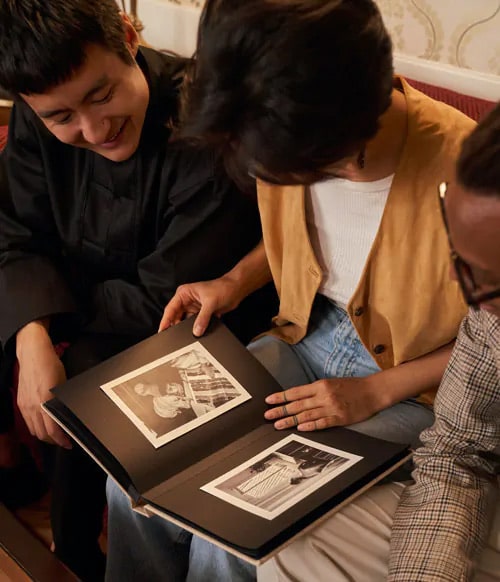We often hear that there is no structure for going through the stages of grief, and for the most part this is true as your mind and body will ride the waves as they come – in no particular order. However, there are methods that can help us manage those waves so they don’t engulf us entirely.
Molly came up with the Honoring Time strategy while working at the Mayo Clinic with cancer patients and their loved-ones. This is a tool that will give you a set time (or times) each day to remember and sit with your feelings surrounding a loss. Then when a strong wave of emotion pops up at an inconvenient time, you’ll be able to identify it and save it for later; “Ok yes, that’s grief. I’m going to reserve that for Honoring Time.”
Anything That Causes Grief and Sadness from A Loss Can Benefit from the Honoring Time Strategy!
This could be a loss of a friendship, a breakup or divorce, the death of a pet or family member, or loss of function or abilities caused by and illness or accident. Any change in circumstances that disrupts our life routines can cause us grief. If we try to push away our feelings, it can affect our moods and the day-to-day tasks we need to accomplish. We need to process through those feelings in order to move forward with a lighter, brighter outlook – and this strategy can help!
How Honoring Time Works…
We recommend setting one time every day to set aside as Honoring Time. (You can certainly do more than one per day if you are too frequently being overwhelmed with waves of emotions – and this may be needed in the initial weeks immediately following a loss.)
The time can be over morning cup of coffee, or in the evening after dinner or before bed, or whatever time works best for you to have some time to process.

You then decide how much processing time you’ll need on any given day. There is no judgment here! It can be 1 minute one day and an hour the next – whatever pours out is helpful until it’s tapped.
Some choose to use a journal to write down thoughts, emotions and feelings. While journaling, you don’t stop to edit what you write; just take pen to paper and let it all come out.
Or you can talk aloud to that person/pet/etc. (or just think) about whatever comes to mind – revisit memories (both good and bad), reflect on the relationship dynamics, are there any takeaways you can turn into life lessons?
When the journaling or thinking/talking slows, form a gratitude statement to close this session… “I am grateful I had the opportunity to learn about myself in this relationship.” “I’m grateful for your sense of humor and the role model you have been for me.” “I’m grateful for the lessons you have taught me, such as______.” Always end with the gratitude statement because it symbolically closes the honoring time session.
And, finally, when the wave of grief and loss comes out during the regular course of the day, you can then recognize and label it as something to save for your next honoring time!
Some Helpful Thought/Journal Prompts for Honoring Times…
For Loss of Ability – If you’re missing an activity you used to enjoy, think about the parts you miss most…What emotions come up? What can you still do that also makes you happy? What parts of yourself are still awesome and can potentially be used to compensate differently to give you positive outcomes? What do you still have working in your favor and what/who can you be grateful for?
For Loss of a Relationship/Breakups – What did you like about yourself in this relationship that you want to carry with you into the future? What did this relationship bring out in you that you want to learn from and not carry forth? What did you like about the dynamic of this relationship in general? What did you dislike about the dynamic? What new boundaries and standards will you incorporate now?
For Loss of a Loved-One/Death – What is a funny memory and a comforting memory? Talk to them about your day. Make a list of the things you want to remember about them. If a holiday is approaching, how’d you spend the events with them before and how will you honor them this year? Are there music or symbols they liked, like favorite animals or butterflies or cars? Share your fears and hopes with them.
For Older Grief that Still Lingers – Looking through photos can help us remember important memories and you can write about them as you reconnect with them visually. Sometimes your phone and social media will automatically make these “memories” for you that can crop up unexpectedly, so be prepared for those and know that purposefully looking at photos during honoring time can help us heal and handle those blips with more grace.
You can also use honoring time to write down memories of this person you want to share with someone else. For example, a mother may want her grown son to remember fun stories and impactful times about the father that has passed, so she can journal these and share them as gift when the time is right. This is a departure from the typical Honoring Time session, since this is a gift that is shared with someone else whereas the others are usually kept private.

As You Begin to Feel Better, The Honoring Time Becomes Less Frequent and Less Intense.
In the year of firsts, grief is always more intensified – holidays, birthdays, etc. Honoring time is especially helpful during these events. Eventually, you’ll notice that you’re healing and have moved onto acceptance. Just know the strategy is always here for you and impromptu Honoring Times are always welcome.
Of course, this is just one tool in a larger toolbox to help overcome grief and loss. We love to supplement this strategy with EMDR therapy which helps us reprocess past memories with the luxury of hindsight, helping to heal our wounds more quickly and with better insight than before. If you’re interested, we invite you to read more about EMDR – one of our favorite therapy modalities.
We hope you find this Honoring Time strategy for processing grief and loss helpful. You may not need it today, but you will likely have use for it someday in the future, so we’re glad to have this opportunity to share it with you now!
~Molly Mahoney
Keep Reading
Want more? Here are some other blog posts you might be interested in.







